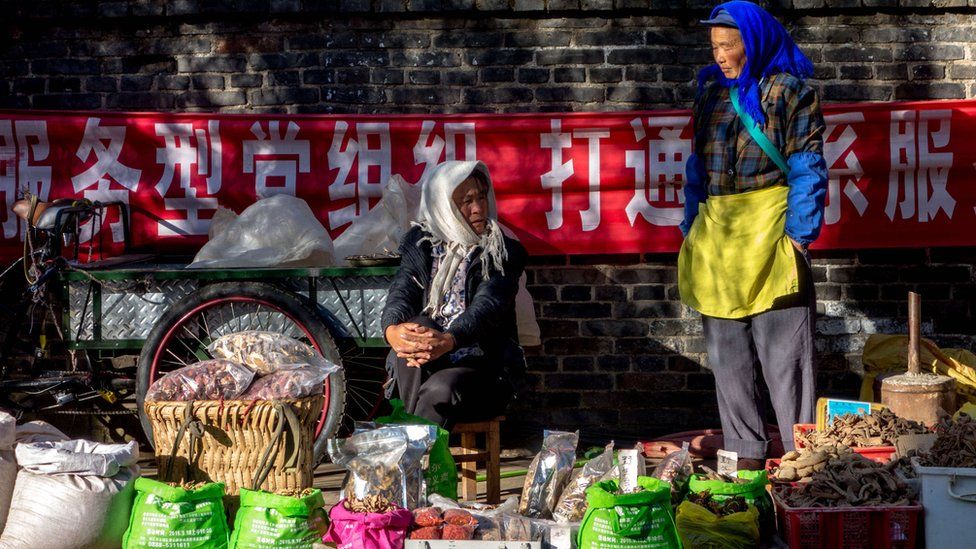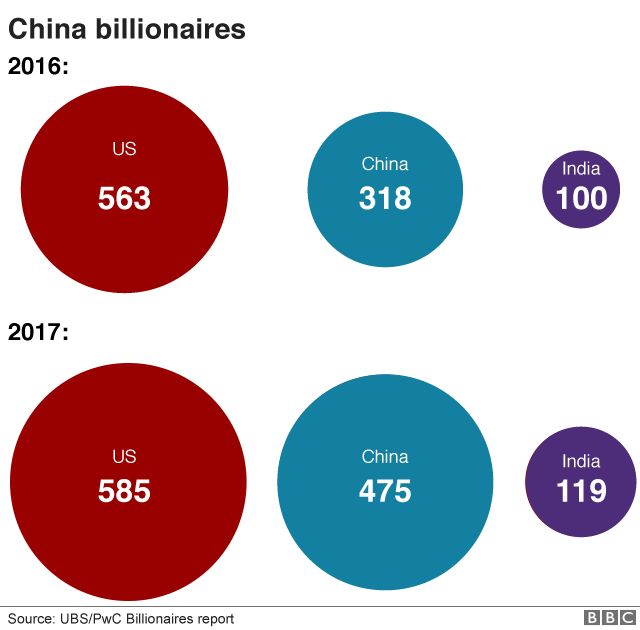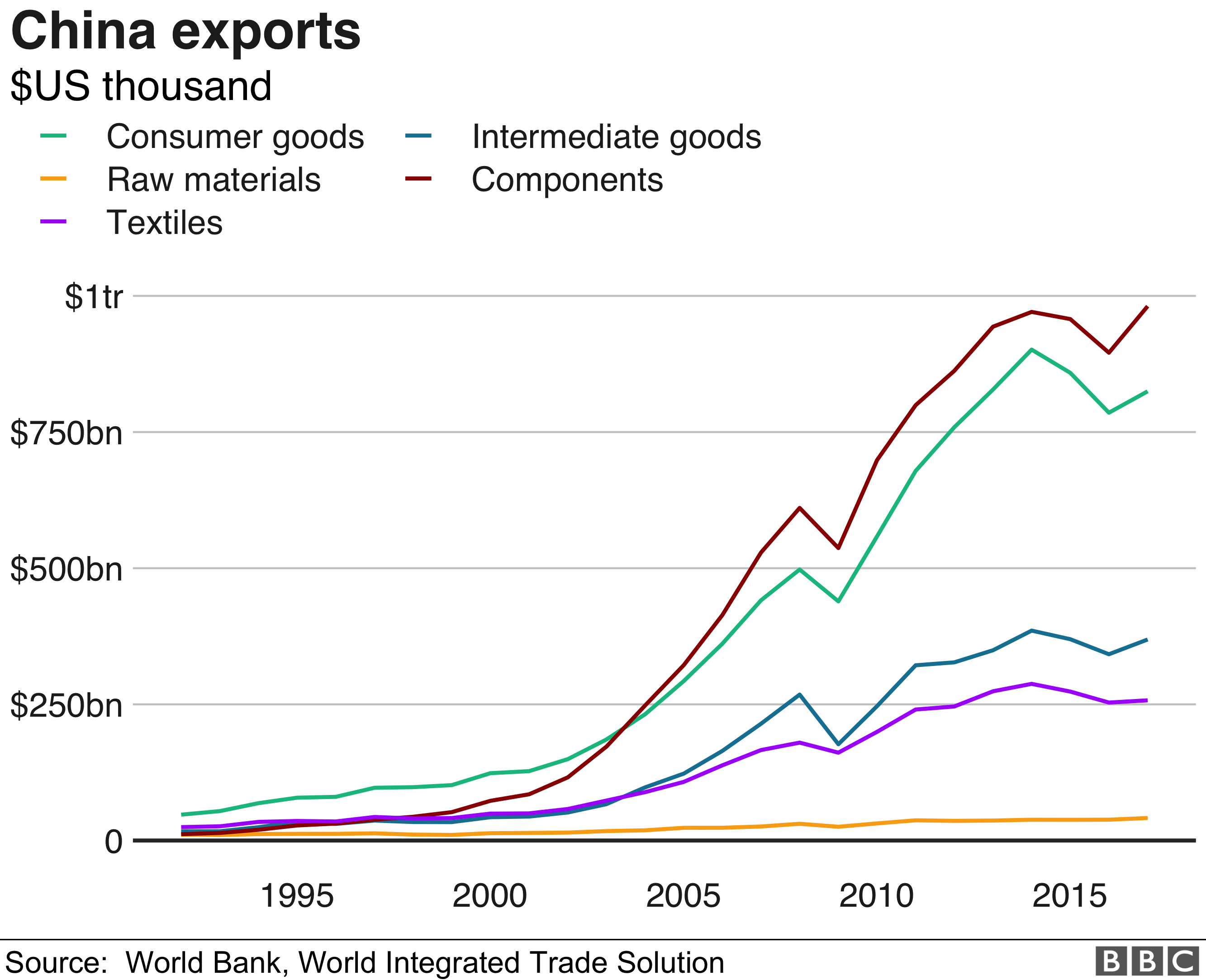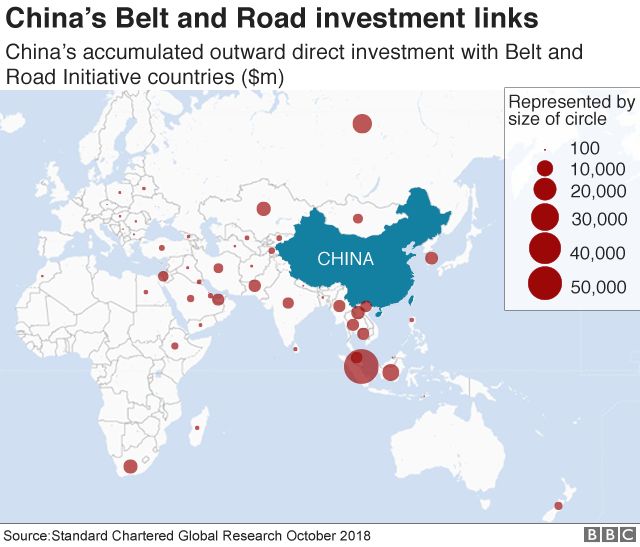Eradicating Poverty in China
"I insisted on looking at real poverty, understanding the real efforts to reduce poverty, helping those who are in real poverty and achieving real poverty alleviation.""[The] arduous task of eradicating extreme poverty has been fulfilled.""According to the current criteria, all 98.99 million poor rural population have been taken out of poverty, and 832 poverty-stricken counties as well as 128,000 villages have been removed from the poverty list.""The CCP’s leadership and China’s socialist system are the fundamental guarantees against risks, challenges and difficulties."Chinese President Xi Jinping, Ceremony, Beijing, Great Hall of the People
 |
| It took China less than 70 years to emerge from isolation and become one of the world's greatest economic powers. Getty Images |
"When the Communist Party came into control of China it was very, very poor.""There were no trading partners, no diplomatic relationships, they were relying on self-sufficiency." DBS chief China economist Chris Leung"[The ceremony and propaganda were] aimed at painting Xi Jinping as the victorious commander leading China to success in its millennia-long battle against poverty and allowing him to claim personal credit for this accomplishment.""This will have dramatic ramifications in terms of Xi's personal power, the extent to which a cult of personality surrounding Xi will be tacitly or directly encouraged."Professor Carl Minzner, specialist in Chinese law and governance, Fordham Law School
 |
Xi Jinping in Beijing on Feb. 22. Xi has made fighting poverty one of his main goals since becoming leader of the ruling Communist Party in late 2012. Photographer: Xinhua News Agency/Getty Images |
What is beyond doubt is that Xi Jinping's vision and belief in his purpose as the guiding light of China is as egotistical and ambitious as his predecessor's. President Xi's personal power readily equals that of Mao Zedong's. But it is without doubt that his personal legacy has been sealed with this historical accomplishment whose stunning vision and proportional success has no rival anywhere in the world. It is no mean feat; setting aside the highly regimented society heavily reliant on state surveillance of the population and rules of behaviour permitting no criticism of its government.
Freedom of any kind in exchange for economic stability. Freedom from starvation. Opportunity for economic advancement. The large and growing Chinese middle class is now able to live in a way that no other generation could even begin to imagine, accruing to itself ownership of property and goods and enjoying services previously unheard of. China's technological advances in every sphere of human endeavour has begun to surpass even that of the mighty United States of America.

Its influence and far reach globally aided substantially by Beijing's use of investment abroad to cant the world toward its advance and benefit. As a member of the UN Security Council, Beijing's human rights abuses cannot be placed under universal condemnation and the CCP sanctioned for egregious conduct. China's new war is one of propaganda, propagated steadily and stealthily while it spreads its influence socially, economically and politically. Its immense hunger for natural resources gathers up the rare and the mundane.
It has the world at its beck and call, the most industrious manufacturer of badly needed supplies of all manner of finished goods and technologies. During a global pandemic which originated in China, the world became dependent on China to provide scarce personal protective equipment to enable its efforts to control the pathogen that has brought world economies to their knees, infected tens of millions of people worldwide, and killed millions more.
The
global manufacturing, technological, military colossus produced a viral
pandemic that consolidated its influence and power while it solved the
endless cycle of endemic poverty at home, even while manipulating its
minority populations to become more Chinese, setting aside 'splittism'
in favour of 'harmony', and thus achieving happiness as they eschew
their traditions, culture, language, religion and liberty in favour of
one great big happy family approved by the Chinese Communist Party.

Labels: China, Chinese Communist Party, Poverty Eradication, President Xi Jinping

<< Home